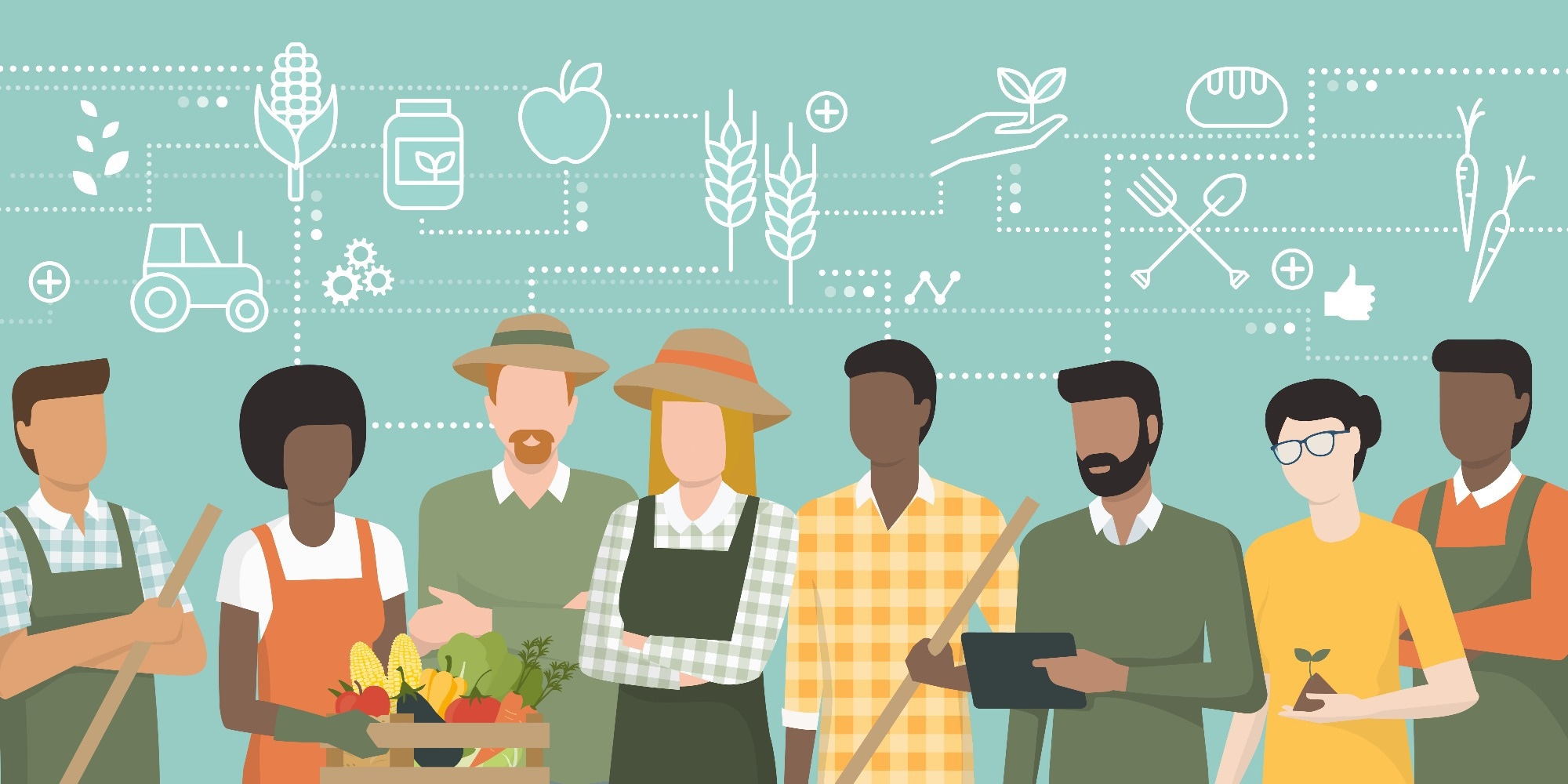From consumer interactions to stakeholder initiatives and policy integration, communication has become integral to modern agriculture. Effective communication improves interpersonal relations and plays a significant role in improving productivity, reducing costs, and adapting to changing environmental and socioeconomic conditions.

Image Credit: elenabsl/Shutterstock.com
Benefits to effective communication in the agricultural industry
Communication refers to exchanging information between individuals, parties, or the broader community. In agriculture, parties that rely on effective communication are typically stakeholders, suppliers, institutions, government agencies, or companies that convey information between themselves and consumers. As a result, effective communication is essential for a successful agricultural business.
In recent years, the help of modern technologies has revolutionized existing means of communication as portable digital devices, social media, and the internet as a whole has provided unprecedented access to a wider audience. Sharing and receiving information can be done instantaneously and from anywhere worldwide. Such technology has significant value for the agricultural industry, directly impacting efficiency and productivity.
Communication connects farmers, stakeholders, and other industry professionals, providing access to critical information such as weather patterns, market prices, and new technologies to help them make informed decisions. As a result, Information and Communication Technologies (ICTs) play essential roles in agriculture by fostering collaboration between parties and providing critical information. ICTs now include telephones or televisions, internet and mobile applications, as well as Big Data analytics and information systems.
The value of ICTs was reviewed in a 2020 publication by El Bilali et al., in which authors discussed the role of ICTs in resource production and agro-food sustainability. Key benefits associated with ICTs included reducing agricultural resources and inputs (pesticides, fertilizers, energy, water), decreasing environmental externalities, and improving farmer and farm worker well-being and quality of life. Further benefits are also found when broadening the scope of communication, as effective communication improves food chain transparency during production by providing traceability of products.
Additionally, ICTs are particularly valuable when considering their role in the transition toward sustainable food production. Specifically, the 8th Millennium Development Goal has the target to “make available the benefits of new technologies, especially information and communications technologies (ICTs)” (United Nations 2015a), which is echoed in the Sustainable Development Goals (SDGs) developed in 2015, which are directly associated with ICTs and their implementation. Therefore, communication plays an essential role in modern agriculture, both for improving food productivity and connection in the short-term as well as progressing long-term goals of sustainable production.
Challenges to effective communication in agriculture
Communication and the technologies involved in communication come with opportunities as well as challenges for farmers and farming communities. For instance, ICT solutions can limit the transition towards sustainability in agriculture if developed in isolation from actual farming practices. This was discussed in a 2014 study by Anna Davies, who emphasized the need for parallel development of ICT and urban food futures research to avoid divergent strategies.
Moreover, technologies involved in communication also face separate issues related to data ownership, cyber security, and privacy, which have knock-on effects on communication in agriculture. Such issues are directly related to the increased digitization of farming systems, which heightens the risk of cyber-attacks as the dependency on cloud-based technologies is increasing rapidly. In turn, further security is required to protect communication channels to ensure parties can communicate securely.
Finally, ethical and legal challenges related to communication data pose an additional issue in agriculture, as information quality and quantity can be misused. Specifically, access to reliable information is not distributed equally among food producers, and the spread of misinformation can rapidly affect food networks from producers to consumers. As a result, a certain amount of scrutiny is required to ensure effective and reliable communication is maintained across food producers, consumers, and legislators.

Image Credit: Prathankarnpap/Shutterstock.com
Role of communication in future agricultural systems
The future of communication in agriculture was reviewed by Voytyk et al. in a 2022 study discussing the trajectories of communication technologies. Authors highlight that communication technologies are focusing on expanding communication to broader parties and audiences, and that modern agricultural corporations are focusing on marketing development to develop successful market conditions in agriculture. As a result of the significance of communication technologies, agricultural producers are using an increasingly wider range of online resources and communication channels to connect with consumers.
In coming decades, the broad range of existing communication channels may be narrowed as users determine which methods are most effective to use for product promotion. In time, the integration of new communication technologies as well as the improvement of existing ones will also contribute to changes in agricultural practices. It is likely that communication technologies will become more accessible, be able to reach more parties rapidly, and refine the quality and quantity of information available.
Ultimately, communication is a significant element in modern agricultural practices, which will likely expand in the future. The distribution of information already drives many decisions in the agricultural sector, and communication remains a pillar for stakeholders, policy makers, and producers. In a future marked by changing environmental conditions, a growing human population, and uncertain socioeconomic dynamics, communication will play a key role in maintaining food security.
Sources:
- Bilali, H. E., Bottalico, F., Palmisano, G., & Capone, R. (2019). Information and Communication Technologies for Smart and Sustainable Agriculture. IFMBE Proceedings, 321–334. https://doi.org/10.1007/978-3-030-40049-1_41
- Davies, A. R. (2014). Co-creating sustainable eating futures: Technology, ICT and citizen–consumer ambivalence. Futures, 62, 181–193. https://doi.org/10.1016/j.futures.2014.04.006
- Feng, X., Yan, F., & Liu, X. (2019). Study of Wireless Communication Technologies on Internet of Things for Precision Agriculture. Wireless Personal Communications, 108(3), 1785–1802. https://doi.org/10.1007/s11277-019-06496-7
- Tiwari, S. P. (2008). Information and communication technology initiatives for knowledge sharing in agriculture. Indian Journal of Agricultural Sciences, 78(9), 737–747. epubs.icar.org.in/ejournal/index.php/IJAgS/article/download/9934/4449
- Voytyuk, V. A., Marinchenko, T. E., & Voytyuk, M. M. (2022). New Marketing Communications to Promote Agricultural Products to Foreign Markets. IOP Conference Series: Earth and Environmental Science, 1069(1), 012038. https://doi.org/10.1088/1755-1315/1069/1/012038
Further Reading
Last Updated: Jun 19, 2023